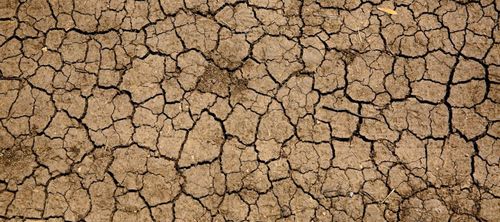Climate Politics Ten Years after the Paris Agreement

The Paris Agreement was hailed as a milestone in climate law and politics. What has it achieved? What is its remaining potential? As the Paris Agreement nears its tenth anniversary, the speakers take stock and look to the future: What can we expect from climate law and politics?
The Paris Agreement on Climate Change established the goals of limiting global warming to well below 2°C, while pursuing efforts to limit it to 1.5°C. Since then, people around the world have increasingly mobilized the law before national and international courts to achieve this goal. And every year, climate negotiations at the Conferences of Parties (COPs) make front-page news, often accompanied by the latest, yet again alarming calculations from the International Panel on Climate Change (IPCC). Today, ten years after the conclusion of the Paris Climate Agreement, it is abundantly clear that many hopes have been dashed. The hottest year on record was 2024, with a recorded 1.6°C of warming. As emissions and temperatures continue to rise, the Paris Agreement’s goals risk becoming unachievable altogether.
The role of law in addressing this crisis begs scrutiny. Over the past decade, the number of legal instruments to combat climate change has increased. Global greenhouse gas emissions have continued to rise simultaneously. More than half of all greenhouse gases since the Industrial Revolution were emitted after 1992—not only at a time when the causes and disastrous effects of climate change were sufficiently known, but also after states had agreed to the Framework Convention on Climate Change at the Rio Earth Summit. How should this parallel between more climate law and ever-increasing emissions be understood?
The event marks a collaboration on this topic with the street journal “Arts of the Working Class”, and launches the journal’s current issue that will also be distributed during the COP30 in Belém, Brazil.
About the speakers
Ingo Venzke is Professor for International Law and Social Justice at the University of Amsterdam where he directs the Amsterdam Center for International Law (ACIL) and leads the collaborative research project on Sustainable Global Economic Law (SGEL). His public writing includes an essay on Tragedy & Farce in Climate Commentary (2023), published in the European Review of Books. He currently finalizes a monograph on “The Struggle against Fossil Sovereignty: Law in the Climate Crisis”.
Christina Eckes is professor of European law at the University of Amsterdam and director of the Amsterdam Centre for European Law and Governance (ACELG). Her current research interest is strategic climate litigation’s direct and indirect consequences for the democratic process in the multi-layered legal landscape of Europe. Her most recent publications examine the legal and factual exceptionalism of climate litigation, climate constitutionalisation, and the normative relevance of climate science in litigation.
Margaretha Wewerinke-Singh is Associate Professor of Law at the University of Amsterdam and Adjunct Professor at the University of Fiji. Her publications include State Responsibility, Climate Change and Human Rights under International Law (2019) and The Cambridge Handbook on Climate Litigation (edited with Sarah Mead). Her research builds on extensive practice. Currently, she is lead counsel for Vanuatu in climate proceedings before the International Court of Justice and the Inter-American Court of Human Rights.
María Inés Plaza Lazo is a writer, editor, and cultural worker from Guayaquil, Ecuador. She is the co-founder and editor of Arts of the Working Class, a multilingual street journal on poverty and wealth, art and society. Trained in art history in Munich and shaped by transnational feminist practice, her work moves between publishing, curating, and collective pedagogy—always questioning who art is for, and under what conditions it circulates.